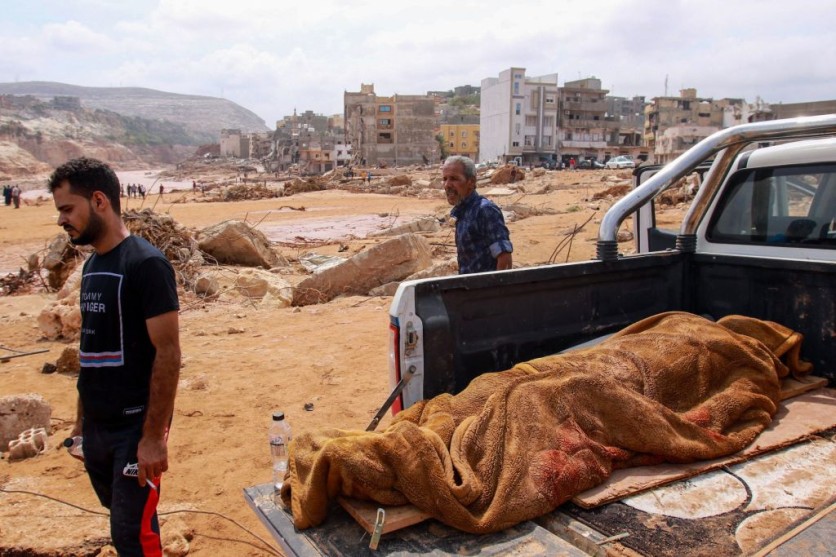Three international health groups warn against rushed mass funerals in Libya after this week's massive floods.
The International Committee of the Red Cross (ICRC), the World Health Organization (WHO), and the International Federation of the Red Cross and Red Crescent Societies (IFRC) all emphasize that while it is upsetting to see corpses, there is little to no danger to the public's health.
The global health groups address the myths about corpses in disaster and war situations in a united statement. Contrary to the widely held idea that they transmit illness or pollute water systems, they noted that corpses arising from armed conflict or natural catastrophes seldom pose health concerns to communities.

Dead Bodies from Natural Disasters Pose Low Health Risks
According to the WHO news release, the corpses of the Libya flood victims "should not be left in contact with drinking water sources." It also quoted Pierre Guyomarch, the head of ICRC's forensics unit, saying: The belief that dead bodies will cause epidemics is not supported by evidence. We see too many cases where media reports and even some medical professionals get this issue wrong. Those who survive an event like a natural disaster are more likely to spread disease than dead bodies."
To guarantee correct burial procedures, the health organizations recognize their presence in Libya and support local authorities there with advice, supplies, and training. While acknowledging the sorrow caused by departed corpses, they advise against mass burials, which may harm people legally and emotionally.
Instead, they support properly managed funeral arrangements that include individual graves, meticulous paperwork, accurate body placement, and the preservation of heirlooms. This method guarantees the deceased's respect and dignity but has no positive effects on public health.
"An unnecessary rush to dispose of the bodies of those killed in disasters or conflict deprives families of the opportunity to identify and mourn their loved ones while providing no public health benefit," said Gwen Eamer, the IFRC's senior officer for public health in emergencies, as quoted by VOA. She noted that according to local cultural and social traditions, the dead must be identified and mourned properly.
Read also: Cancer Treatment Breakthrough: Gold Nanoparticles Induce Self-Destruction in Glioblastoma Cells
What Happened?
The citizens of Derna were startled out of their rest at 3 a.m. on a Monday when Libya, which was experiencing terrible floods, experienced a disaster. According to CNN, an initial dam breach was quickly followed by another, causing a large flood of water to erupt and rush across the mountains into the seaside city of Derna.
Derna, in eastern Libya, had 100,000 people before this calamity. Authorities estimate at least 10,000 missing people. The ICRC reported that a 7-meter (23-foot) tsunami devastated buildings, households, and critical infrastructure in the city.
Storm Daniel brought heavy rain to Libya on Sunday. Storm Daniel changed into a "medicane" over the Mediterranean after passing over Greece, Turkey, and Bulgaria, where it produced significant flooding and killed more than 20 people. Medicane, a rare hurricane-typhoon-like weather system, strengthened over the extremely warm Mediterranean seas before dumping copious rainfall on Libya.
Al-Bayda, a city west of Derna, broke a new record for 24-hour rainfall with an astounding 16 inches (414 mm) of rain. While the storm's cause is still being investigated, experts are more certain that climate change intensifies severe weather occurrences like hurricanes.
The University of Reading in the UK's Hannah Cloke, a professor of hydrology, emphasized that storms "are becoming more ferocious because of climate change."
Derna Mayor Abdulmenam al-Ghaithi said the city's Libya flood death toll might reach 18,000 to 20,000 due to substantial district devastation. He also noted that the Libya flood has prompted rescue teams from Egypt, Tunisia, the UAE, Turkey, and Qatar, as reported by Al Jazeera.

ⓒ 2026 TECHTIMES.com All rights reserved. Do not reproduce without permission.




